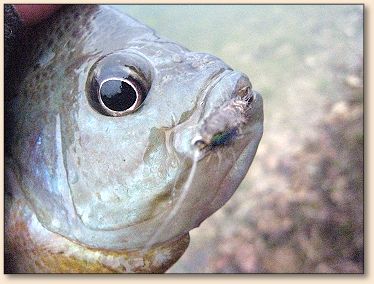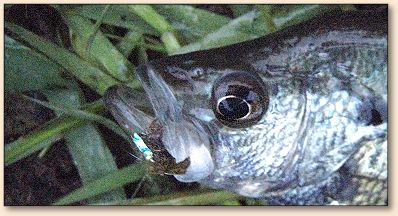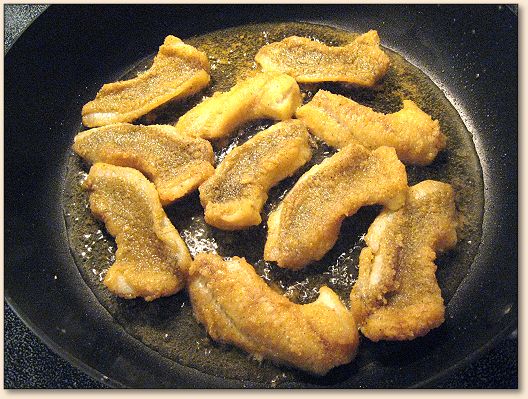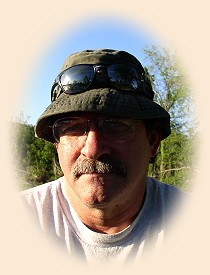|
Since the invention of moveable type, quite a number of
non-fiction books have been written about overland
expeditions undertaken by European and American explorers
and adventurers. I've read a few such books. It must be
because I've been a lifelong outdoorsman, but one thing
in these books that immediately caught my attention were
the brief accounts of meetings that took place between
the white explorers and resident Indians during foul
weather periods.
These meetings took place at established Indian encampments,
never in the wilds. Why was that? It was because the
European and American explorers were only passing through;
they would stubbornly remain afield exposing themselves
to weather extremes, and as a consequence suffer terrible
physical hardships. Whereas the Indians they encountered
would stay indoors comfortable in their tents or lodges.
Only AFTER the storm had passed would the Indians venture
back outside and resume their normal daily activities.
Memories of those book passages came back to me a number
of times during the first week of April this year, when
northeast Kansas was beset by winter-like temperatures,
rain and high wind. Being a recently retired person, I
had no further need to drive 110 miles every weekday from
Lawrence to Kansas City and back to Lawrence. Freed of
this obligation but suddenly barred by miserable atmospheric
conditions that made me shiver every time I looked outdoors,
I opted to keep myself inside the house I'm sitting and
just...wait out the weather.
I had enough food on hand that except for short walks to
the mail box I had no need to set foot outside the house
for seven consecutive days, except for one evening of
playing music at the jam where I'm the duty bass player.
It made me smile, thinking of all the gasoline money I
was saving.
"You're so smart!" I told myself with a smile, "You're doing
just like the shrewd Indians in those books; you're staying
inside where it's comfortable, waiting for this nasty weather
to clear. Man, did those old Indians have it figured out
or what?"
After the eight straight day of foul weather, my book-reading
memories began colliding with my desire to go fishing. Try
as I might, I couldn't recall if any of the old Indians
mentioned in those books had been fly fishermen. I suppose
they could have been and history never recorded the fact
because their fly rods were stashed somewhere out of sight
each time a dazed and confused party of white explorers came
slogging into camp.
But this is beside the point: What, I wondered, would an
ancient Indian do who if he was a fly fisherman and, after
a long cold winter, had tasted two weeks of wonderful spring
weather during which time he caught lots of panfish but then
had been driven back indoors by the return of cold, foul
weather? Would he sit there in his tent or lodge in perfect
comfort for eight straight days, staring for hours into a
crackling campfire? Would he wile away the hours cooking
and eating, drinking Sumatra Velvet coffee, watching TV,
doing laundry, reading books, swapping email, cleaning the
bathroom and checking the National Weather Service extended
forecast every few hours hoping for good news to appear?
Well, would he?
Historical comparisons like these can begin working on
one's mind after awhile. In my case, I finally snapped.
"I'm sick of being smart!" I admitted to myself grimly,
"I will be a foolish white man today, just like in those
books. I will go to the lake this afternoon despite this
cold rain and wind, to explore whether a panfish can be
caught!"
At the lake, I parked at a spot where three weeks earlier
in balmy weather I'd caught big bluegills one after another.
It was 5 p.m. now. A 15-mph southeast wind was blowing.
From the lead-colored sky above fell alternating episodes
of mist, then sprinkles, then medium-hard rain. The air
temperature hovered in the upper 40s. Sure enough, there
wasn't an Indian in sight.
Fan casting my way along 50 yards of shoreline, my nymph
attracted not a touch. After 20 minutes of no hits, I
remembered that one my Old Reliable nymphs was still
hanging in a tree branch here, where I'd snagged a
backcast a week earlier. Grabbing my Nifty Nabber
trash picker-upper from the bed of my pickup truck I
went to the spot, reached up high as I could and grabbed
the branch in question. I pulled down to bring it within
reach but the limb had more spine than I'd expected. Its
tip snapped off and during the limb's rebound the tippet
section Old Reliable was tied to wrapped itself another
couple of turns around the stub, which now, thanks to the
break, was at a height I could no longer reach. Sorry,
Old Reliable.
Minutes before abandoning this spot, someone drove around
the lake perimeter road behind me then parked across the
lake arm near a spot where I wanted to fish next. I drove
around there anyway, and after parking I fished a shoreline
pocket where a week earlier I'd ripped into bluegills, red
ear sunfish and crappies. Today, though, not a single hit
was forthcoming at this spot.
I began working west toward the driver of the pickup who'd
arrived here before me. I could see him up ahead; he was
a spinning tackle user who was vertical fishing off one of
the fishing docks. I'd now spent about 45 minutes nymphing
this lake arm without one hit to show for my labors. The
sky had gone from mist to light sprinkles, and now serious
rain drops began coming down. Midway through a retrieve I
decided enough was enough, I was done, I never should have
bothered. This is my last cast.
The whole time I'd been using figure-8 line twist pickups
to move my nymph through the water. Now that the decision
to go home had been made I began stripping line toward me
hurriedly, in rude 2-foot pulls. 15 feet from shore my
nymph was seized and at the same instant the fish was off.
A hit. Hmmm. Well, I had brought along my small ice chest
this afternoon in hopes of catching supper, so if I just
got this hit then why not stick with it a little longer?
I mean, a hit can't be ignored, right?
A few minutes later Bluegill #1 was hooked, landed and
laid on ice. I worked a few feet down the shore and 'Gill
#2 volunteered himself for an ice cube snooze. Then the
rain began.
The way things had been going, I decided against walking
back to my truck for cover. Instead, I hurried west and
took shelter beneath an overhang at this lake's concessions
building. Soon the rain eased off, but once it did the
wind increased. By now my hands were getting pretty cold
and stiff from being constantly wet and exposed to the wind.
Just then the other fisherman who'd arrived before me,
the guy I hadn't seen for some time and who I thought
had left, came walking down from his parking spot.
Sure enough, it was another white man.
"Doing any good?" he asked, and as if on cue the two bluegills
inside my ice chest began flopping and banging against the
lid. "Sounds like you've got something in there."
"Just a couple of bluegills. How about you?" I asked.
"I've caught five. A couple were crappies, one was
9-inches the other 12-inches."
("White man speak with forked tongue," I wanted to say, but
didn't. I mean, if it was me who'd caught two nice crappies
in the short period of time he'd been here, I would not have
left that fishing dock with a stranger approaching on foot
who might move into my vacated spot.
The best thing about being a fly fisherman who primarily goes
after bluegills is that you can tell people the truth about
your successes and they think you're lying, so they don't
care. And when non-fly fishermen tell you about the
fantastic success they're having, even if it's the truth
you don't care.)
"Well, hey man, that's cool; I'm just gonna work on west and
try my luck. I've never fished so far down this shoreline
before, maybe there's some bluegills along here. Hope the
rain doesn't get going again." And off I went.
I picked up a third keeper bluegill soon after leaving
the concession building overhang. I also began catching
young largemouth bass – your basic 12-inchers that would
be great table fare if removed from an over-populated
farm pond. But in this state-managed lake 12-inchers
are too short to be legal keepers.
Again the rain returned, the day's hardest rain, and this
time I got caught 80 yards from the concessions building
overhang. I took shelter (if you can call it that) on
the leeward side of a large hackberry tree. Standing
here for some 20 minutes, my clothing began water logging.
The makers of fiberfill clothing and sleeping bags love
to advertise their products as "warm when wet." Yeah,
right. Any hope of staying "warm when wet" disappeared
when this 45-degree rain water soaked through my jacket's
insulating material, trickled down past my shoulders and
saturated my armpits.
Worse than my physical discomfort was the sudden realization
that my digital camera and cell phone were pocketed inside
my now-soaked jacket! Were they already ruined? I didn't
dare pull them out to check; doing so would certainly
drench them. It was now, definitely, time to leave.
I got back into my truck, pulled the camera and phone
out of their pockets and they were both dry. Whew!
Because I'd parked with my pickup's radiator pointing
away from the direction of home, I continued southwest
along the perimeter road with intentions of circling
the lake. Since I'm already out here, I figured there's
no reason why I shouldn't scout the lake at various
places just on general principle. And about the same
time I pulled away from the concession buildings the
rain eased off to almost nothing, just a light drizzle.
But it's getting late now, maybe 7:30 p.m., cloudy sky
getting darker by the minute. Coming around a bend that
brought into view a lake arm where I've caught many panfish,
I spotted a picnic area (unoccupied) that looked reasonably
protected from the wind.
Well, why not; I'm here? Only three bluegills were in my
ice chest and this might be my last chance to add more.
Looking in the back of my pickup cab, I found a second
jacket laying there, bone dry. And when I put it on I
further discovered a pair of fleece fingerless gloves
in its pockets. So now even if I didn't catch anything,
at least I'd be fishing comfortable.
Observing the picnic area's flattened-grass shoreline
where many fishermen had obviously already stood, I
selected an undeveloped adjacent shoreline zone where
it appeared few fishermen had been. Maybe the panfish
here were more willing to bite due to having been
subjected to less fishing pressure? Only one way to
find out.
On the first cast Old Reliable was engulfed by a keeper-size
'gill that went into my little ice chest following a bitter
struggle. This made four bluegills on ice. The way my
fishing math operates you don't count fish, only fillets;
I now had eight bluegill fillets for supper.
In the next 20 minutes of fishing I caught two more 'gills,
the last the biggest – one of those hump-head male 'gills
you love to hear knock on your door.

Minutes later, a line twitch indicated another take. I
lifted the rod and to my great surprise a few seconds
later landed a male black crappie! Energetic rascal;
his high-speed fight fooled me into thinking he was a
young largemouth bass, right up until I lifted him from
the water.

Catching this crappie after three hours of physical misery
provoked serious thoughts of staying after dark. But with
the light fading fast I quit and headed home. After scaling
and filleting my fish, I dredged each fillet in Louisiana
New Orleans Style Fish Fry (lemon flavored) and fried them
up for a much needed late-evening supper.

I couldn't get all 14 pieces to fit into my skillet at
the same time; it took a second batch to finish the
cooking job. I wasn't sure I could eat 14 fillets in
one sitting, but as things turned out that wasn't any
problem at all. ~ Joe
About Joe:
 From Douglas County, Kansas, Joe is a former municipal and
federal police officer, now retired. In addition to fishing, he hunts
upland birds and waterfowl, and for the last 15 years
has pursued the sport of solo canoeing. On the nearby
Kansas River he has now logged nearly 5,000 river miles
while doing some 400 wilderness style canoe camping
trips. A musician/singer/songwriter as well, Joe recently
retired from the U.S. General Services Adminstration.
From Douglas County, Kansas, Joe is a former municipal and
federal police officer, now retired. In addition to fishing, he hunts
upland birds and waterfowl, and for the last 15 years
has pursued the sport of solo canoeing. On the nearby
Kansas River he has now logged nearly 5,000 river miles
while doing some 400 wilderness style canoe camping
trips. A musician/singer/songwriter as well, Joe recently
retired from the U.S. General Services Adminstration.
Joe at one time was a freelance photojournalist who wrote the
Sunday Outdoors column for his city newspaper. Outdoor
sports, writing and music have never earned him any money,
but remain priceless activities essential to surviving the
former 'day job.'
|




 From Douglas County, Kansas, Joe is a former municipal and
federal police officer, now retired. In addition to fishing, he hunts
upland birds and waterfowl, and for the last 15 years
has pursued the sport of solo canoeing. On the nearby
Kansas River he has now logged nearly 5,000 river miles
while doing some 400 wilderness style canoe camping
trips. A musician/singer/songwriter as well, Joe recently
retired from the U.S. General Services Adminstration.
From Douglas County, Kansas, Joe is a former municipal and
federal police officer, now retired. In addition to fishing, he hunts
upland birds and waterfowl, and for the last 15 years
has pursued the sport of solo canoeing. On the nearby
Kansas River he has now logged nearly 5,000 river miles
while doing some 400 wilderness style canoe camping
trips. A musician/singer/songwriter as well, Joe recently
retired from the U.S. General Services Adminstration.